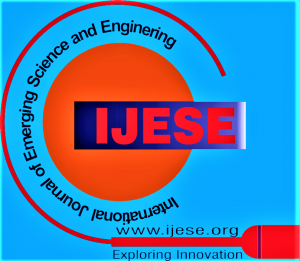![]()
Towards Improving Quality of Education in Chemistry: An Investigation into Chemistry Teachers’ Knowledge of Chemistry Curriculum
Eugene U. Okorie1, Francis Akubuilo2
1Eugene U. Okorie. Department of Science Education, University of Nigeria, Nsukka. Lecturer and Research Fellow.
2Dr. Francis Akubuilo: Lecturer, Research Fellow at the University of Nigeria., Nsukka.
Manuscript received on July 11, 2013. | Revised Manuscript received on July 15, 2013. | Manuscript published on July 25, 2013. | PP: 30-34 | Volume-1 Issue-9, July 2013. | Retrieval Number: I0367071913/2013©BEIESP
Open Access | Ethics and Policies | Cite | Mendeley
© The Authors. Published By: Blue Eyes Intelligence Engineering and Sciences Publication (BEIESP). This is an open access article under the CC BY-NC-ND license (http://creativecommons.org/licenses/by-nc-nd/4.0/)
Abstract: The 21st century world is a knowledge society and a lot of emphasis is placed on possession of knowledge and skills. 21st century teachers are therefore expected to possess, to a great extent, pedagogic content knowledge (PCK), discipline-based knowledge (D-bK) and curriculum content and context knowledge (CCCK). These aspects of knowledge are essential for teachers to deliver lessons effectively and efficiently to students. Deficiency in any of these aspects of knowledge is bound to bear on teachers’ effectiveness, and consequently reflect on students’ learning and learning outcome. Secondary school students’ underachievement in chemistry has often been associated with teachers’ poor knowledge of the teaching curriculum on which students’ learning is based. This study set out to ascertain how knowledgeable teachers are about the chemistry curriculum which they implement in schools. The study shows that about 80% of teachers are knowledgeable about the various dimensions of the new chemistry curriculum.The author asserts that lack of knowledge of the curriculum on the part of teachers, which very often is given as one of the contributing factors to students’ underachievement in chemistry may after all be unfounded. The paper made suggestions towards improving quality of education in chemistry.
Keywords: Curriculum, Knowledge, learning outcomes, under-achievement
